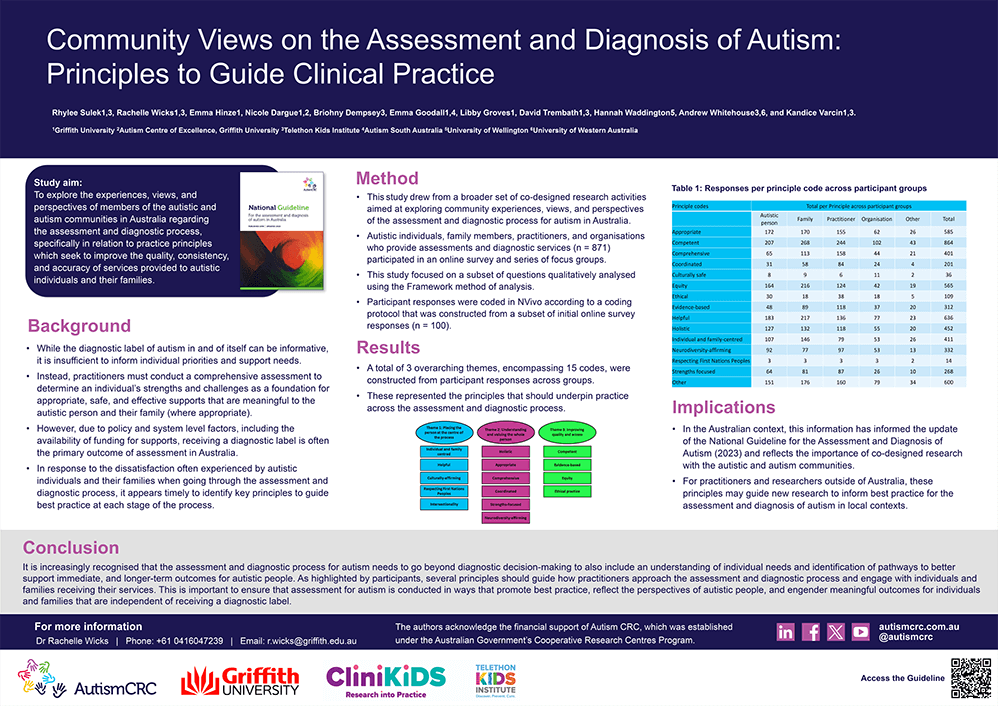Community views on the assessment and diagnosis of autism: principles to guide clinical practice
Abstract
While the diagnostic label of autism in and of itself can be informative, it is insufficient to inform individual priorities and support needs. Instead, practitioners must conduct a comprehensive assessment to determine an individual’s strengths and challenges as a foundation for appropriate, safe, and effective supports that are meaningful to the autistic person and their family (where appropriate). However, due to policy and system level factors, including the availability of funding for supports, receiving a diagnostic label is often the primary outcome of assessment in Australia. In response to the dissatisfaction often experienced by autistic individuals and their families when going through the assessment and diagnostic process, it appears timely to identify key principles to guide best practice at each stage of the process.
Citation
Sulek, R., Wicks, R., Hinze, E., Dargue, N., Dempsey, B., Goodall, E., Groves, L., Trembath, D., Waddington, H., Whitehouse, A., Varcin, K. Community views on the Assessment and Diagnosis of Autism: Principles to guide clinical practice [Poster]. INSAR Annual Meeting 2024, 15-18 May. International Society for Autism Research.
